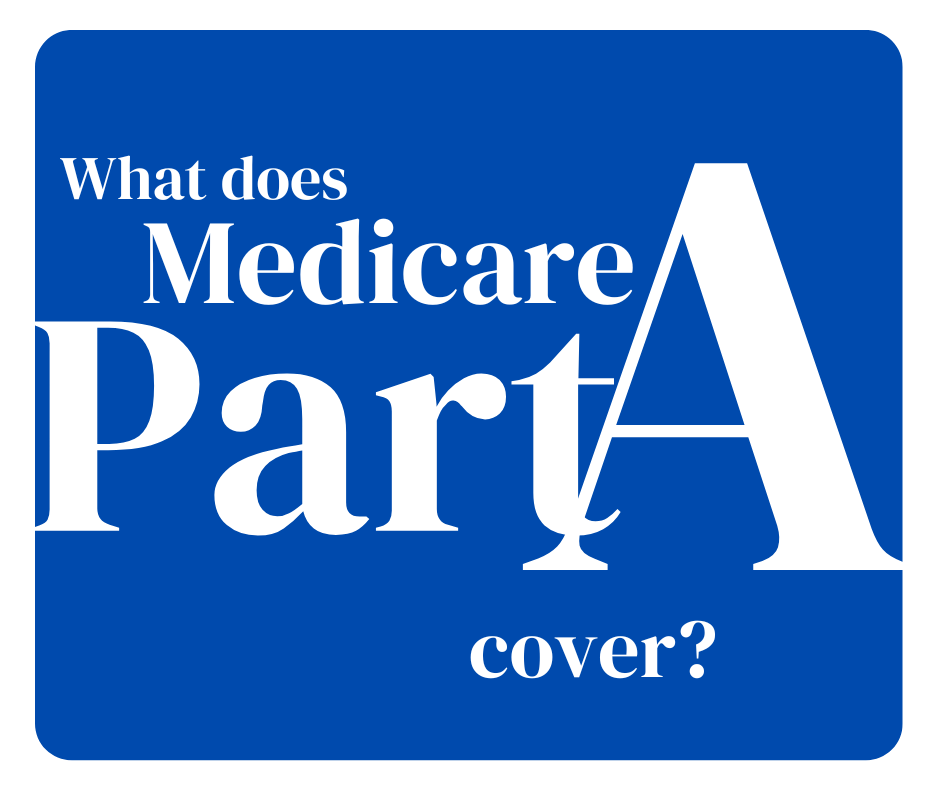
Introducing Medicare Part A
For most people who have worked within the country for at least 10 years, Medicare Part A comes at no extra cost (but yes, a deductible) when you’ve turned 65. You can sign up for Medicare Part A on the social security website at ssa.gov. Register for a new account online, choose a password, and fill in all required information. You will need to verify your identity. I recommend using the ID.me option for verification. Once you have registered for an account, you can then apply to receive Medicare Part A.
But what does Medicare Part A cover? In general, it covers inpatient hospital costs, but it also includes Skilled Nursing Facility costs, Nursing Home Care, Home Health Services, Hospice, and services for behavioral and mental health. Let’s go into the specifics of each.
Inpatient Hospital Care
If your doctor gives an official order for inpatient treatment and if your hospital accepts Medicare, you may qualify for Medicare Part A benefits in the hospital (not including doctor services while there). The first 60 days have no cost after you have met your $1676 deductible (2025 rate). Days 61-90 cost $419 per day. After day 90, you begin to use what Medicare calls “reserve days.” You have a total of 60 reserve days to use over your lifetime. The coinsurance for these lifetime reserve days is $838 per day.
It is important to remember that just because your doctor recommends something does not mean it is automatically approved by Medicare. Always ask questions to understand why certain procedures are recommended or why they are recommended more frequently. This will help you stay aware of what extra costs you may be incurring. Your provider should be able to look up what part Medicare will pay before you agree to any plan of action.
Skilled Nursing Facility
This is a LIMITED benefit under Medicare Part A. If you are in a skilled nursing facility (SNF) receiving rehabilitation and medical treatments after a hospital stay, Medicare will generally cover the costs for a limited time. Medicare also generally covers drugs administered to you will you are receiving care there.
Nursing Home Care
This is another LIMITED benefit under Medicare Part A. It specifically covers short-term skilled care to recover from an illness or injury if you meet certain conditions. It may also cover this care in your own home. It does NOT exclusively cover long-term or custodial care in these facilities. Custodial care is where you need help with usual activities of daily living (ADL) such as bathing, dressing, and eating. Again, as with the category above, make sure you ask your doctor lots of questions to verify what IS and IS NOT covered.
Home Health Services
These LIMITED services cover necessary medical care when you are homebound. “Homebound” is defined by Medicare as being unable to or having major difficulties leaving your home. It could also be when you are advised to NOT leave your home due to an illness or injury. Often this type of care is less expensive, more convenient, and just as effective as that in a medical center. These services could include the following: wound care, intravenous or nutrition therapy, injections, health monitoring, medical equipment for use at home, physical and occupational therapies, speech-language pathology, patient and caregiver education, and help with activities of daily living (ADLs) such as bathing, feeding, grooming, and walking that are connected to your illness or injury. You must be assessed in-person before Medicare will approve these visits. Be sure to verify with the home health agency what Medicare will cover.
Hospice
This type of palliative care (comfort care) is reserved for those who have been diagnosed with a terminal illness and expected to live six months or less. A regular doctor and a hospice doctor must certify the patient, and a statement must be signed confirming opting out of other Medicare-covered services. Care will be centered around being comfortable, not cured, and could be in a hospice facility, other facility, or at home. Make sure the hospice provider is Medicare-approved, and there may be some additional costs you will be responsible for. Ask (that is the common thread!) your hospice provider to help you understand what IS covered (everything necessary for end-of-life care) and what is NOT (everything NOT related to the terminal illness).
Behavioral and Mental Health Services
Medicare Part A covers up to 190 days of inpatient mental health care in a freestanding psychiatric hospital during your lifetime. This limitation does not apply to psychiatric care within an acute care or critical access hospital (Medicare-certified). You may also get coverage in a general hospital as an inpatient. Services may include counseling, psychotherapy, full- or part-day mental health care, and depression screenings, as well as help with opioid use disorder, smoking and tobacco use, and unhealthy drinking habits.